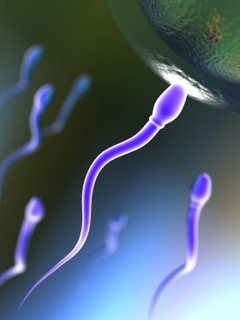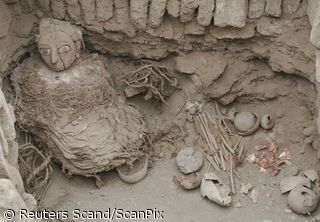CERN's New Particle Accelerator Promises Window on Big Bang
Published:
25 July 2004 y., Sunday
Scientists probing something as big as the origins of the universe sometimes need equipment to match. At the European nuclear research center CERN in Geneva, they're building the most powerful particle accelerator ever. The Large Hadron Collider, as it's called, is expected be able to recreate the conditions that existed at the time of the Big Bang, when the universe was born. Scientists say they hope the new tool will help them unravel the mysteries of matter and energy, and confirm or demolish existing theories.
Contrary to what its name implies, the Big Bang was not necessarily an explosion. Scientists consider the Big Bang to be more of a marker to note that the universe had a beginning. It is the moment in which the universe, space and time were created. CERN Physicist Richard Jacobsson says scientists do not know why or how the Big Bang occurred. But big particle accelerators such as the Large Hadron Collider help them to understand the process.
When the Large Hadron Collider (LHC) is completed in 2007, the superconducting magnets in the machine will operate at 271 degrees, just above absolute zero. However, Mr. Jacobsson says that the temperature created in the proton-proton collisions will be one billion times hotter than at the center of the sun.
Some 6,500 scientists from more than 80 countries currently collaborate on hundreds of ongoing experiments at CERN. The world's biggest particle physics laboratory is celebrating its 50th anniversary this year.
Šaltinis:
voanews.com
Copying, publishing, announcing any information from the News.lt portal without written permission of News.lt editorial office is prohibited.
The most popular articles

The European Commission announced today the award of three of the six contracts for the procurement of Galileo’s initial operational capability.
more »
 The last five students (just in lithuanian) who received a gift of LTL 250 from Danske Bankas in the academic year that just ended were chosen by the casting of lots recently.
more »
The last five students (just in lithuanian) who received a gift of LTL 250 from Danske Bankas in the academic year that just ended were chosen by the casting of lots recently.
more »
 New public-private partnerships launched to boost scientific research – long recognised as a stimulus for economic growth.
more »
New public-private partnerships launched to boost scientific research – long recognised as a stimulus for economic growth.
more »
 A monumental medical breakthrough has been made in this science lab in northern England.
more »
A monumental medical breakthrough has been made in this science lab in northern England.
more »
 At the Paris airshow where planemaker Airbus has announced its plans for a new project.
more »
At the Paris airshow where planemaker Airbus has announced its plans for a new project.
more »
 Divers have spent the past ten years searching for the wreckage of this Second World War Russian submarine.
more »
Divers have spent the past ten years searching for the wreckage of this Second World War Russian submarine.
more »
 It's home to the world's largest laser - and scientists hope it will change the way the world produces energy. The National Ignition Facility - near San Francisco, California - will combine the power of its 192 lasers to create temperatures and pressure that equal the sun.
more »
It's home to the world's largest laser - and scientists hope it will change the way the world produces energy. The National Ignition Facility - near San Francisco, California - will combine the power of its 192 lasers to create temperatures and pressure that equal the sun.
more »
 As concerns about record levels of knife crime increase in the United Kingdom, so too does interest in clothing that offers protection from blades. The company “BladeRunner” offers some protection from knife attack.
more »
As concerns about record levels of knife crime increase in the United Kingdom, so too does interest in clothing that offers protection from blades. The company “BladeRunner” offers some protection from knife attack.
more »
 Cuzco, Peru has now become a land of discovery.
more »
Cuzco, Peru has now become a land of discovery.
more »
 Many Chinese learners are intimidated by the complicated strokes of Chinese characters, but 22-month-old Li Tianqi is way beyond her less than two years. Li can already read and recognize over 2,000 Chinese characters.
more »
Many Chinese learners are intimidated by the complicated strokes of Chinese characters, but 22-month-old Li Tianqi is way beyond her less than two years. Li can already read and recognize over 2,000 Chinese characters.
more »
 This 47 million year old primate fossil found in near perfect condition could form a vital piece of the jig-saw puzzle into the early species which could have lead to the evolution of apes and humans.
more »
This 47 million year old primate fossil found in near perfect condition could form a vital piece of the jig-saw puzzle into the early species which could have lead to the evolution of apes and humans.
more »